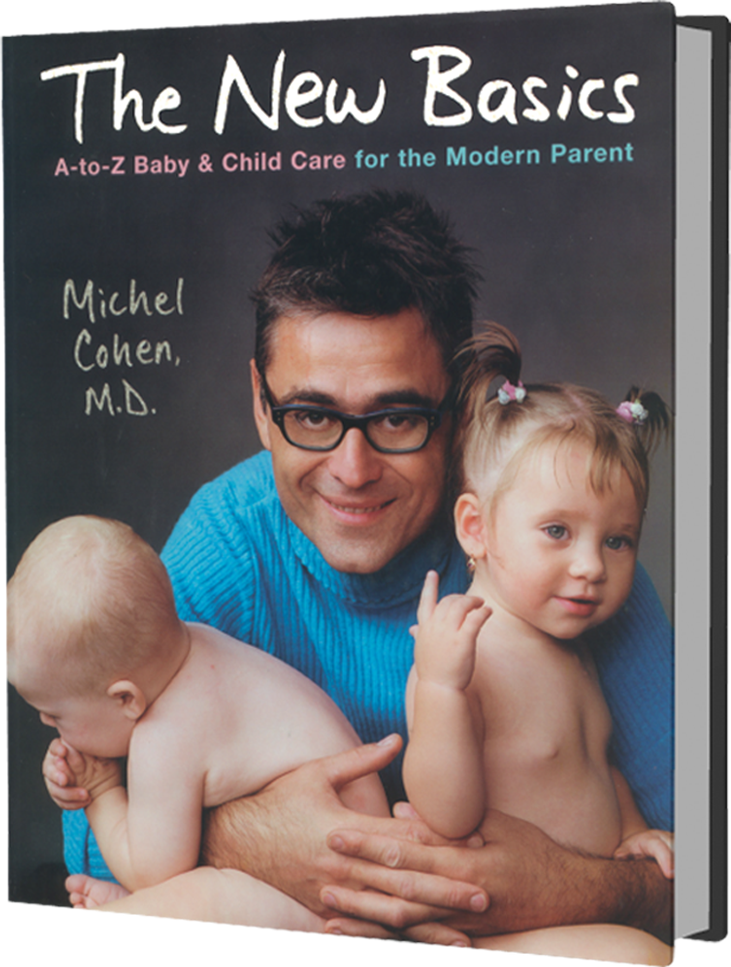
Colic
Colic is a generic term used to describe the condition of a young baby who cries more than normal. As far as I’m concerned, colic does not really exist. First of all, it is unclear what the normal amount of crying should be. Second, some of this excessive crying is actually caused by the obsession to suppress crying. Let me explain.
The Bad News
Whoever told you newborns are happy creatures was lying to you. Look, Lucy is pissed off. Wouldn’t you be? She was nice and cozy in your belly, minding her own business—not too cold, not too warm, no hunger, no light, no sound—just perfect. This may not be evident the first couple of weeks, when Lucy is in the suppressive stage, snoozing most of the time to avoid dealing with the outside world. Don’t rejoice too soon.
The sleepy stage passes, yielding to the adaptive stage. This is when Lucy wakes to the world and realizes she doesn’t necessarily like what she sees. Light, sound, touch, hunger—all of these stimuli are just too overwhelming. And that’s not even counting the intervention of other beings: the bouncing and rocking, the staring, the touching, and the diaper changing. During the adaptive stage, she learns to cope with this flood of new information, but the overabundance of new sensations (even pleasant ones) can make her whiny. When she cries, your instincts tell you to satisfy her needs. Sometimes she has a need; sometimes she doesn’t.
Think of a simple scenario: Lucy is hungry. You feed her, and things get better immediately. That’s easy. Think of a slightly less simple case, in which you think that she’s hungry but realize that she isn’t after she rejects the nipple. You think she just wants to be held, so you rock her a bit, and she calms down. Again, problem solved.
Now imagine a trickier situation: She’s crying her head off at three in the morning. You know she isn’t hungry, because she takes the nipple for a second but then starts kicking you as her face turns red. She does the same when you rock her and sing to her. What’s the problem? You’ve just discovered what all new parents have learned throughout the ages: Every now and then Lucy cries, not because of hunger and not because of a need for closeness but simply because she needs to cry. We associate her horrendous cries with pain or suffering and immediately feel compelled to stop them, but that’s not always the best thing to do. For newborns, crying is as much a tension-relieving mechanism as a sign of discomfort.
When you have reasonably exhausted all methods of soothing, leave Lucy to cry in dim light and warmth in the bassinet [See: Sleep].
After ten minutes, you can attempt to soothe her again.
If she is still frantic, put her back in the bassinet. She’ll eventually fall asleep or return to a calmer state. Be prepared for two or three bouts of crying.
Once it’s clear that Lucy isn’t hungry, don’t feed her. She may take the nipple, but then her belly will fill up more than she can handle and you’ll eventually generate more discomfort and more crying.
Bouncing or rocking her relentlessly may calm her down temporarily, but it will also compound the problem.
Leaving Lucy to cry herself to sleep may sound harsh, but once you understand that you won’t always be able to calm her, life will become easier for everyone. If you were to get caught up in this go-round of overfeeding and overstimulation, you could end up with what people call “colic”—a situation in which a baby never gets the opportunity to cry in order to lower her frustration, so she cries all the time.
You are the limiting factor, not her. The ideal scenario is when she falls asleep after crying, because the next time around she’ll have learned that she can calm herself. Having survived three newborns myself, I know how excruciating this can be for you. With the first two at least, I was often up all night singing and walking around to no avail. I learned the hard way.
Why is my baby crying so hard?
There is only one way for Lucy to cry: She holds her breath, gets all red, and then lets out an ear-splitting shriek, all the while flailing about. It looks intense, especially if you’re related to her, but that’s just how your average newborn cries.
Could she have a belly pain?
When Lucy cries, you look at her, and the first thing you see is her big belly. Lucy cries by contracting her abdominal muscles, which makes her raise her legs toward her belly. The effect is to create the impression of a bellyache. In fact, this is the origin of the word colic.
What about gas?
The belly-pain myth gets worse. Everybody produces intestinal gas, including Lucy. During a crying fit, Lucy raises her legs up to her belly, and the resulting pressure provokes the release of this gas. After a flatulent outburst, she may stop crying momentarily as a result of the pleasant sensation or the surprise. You may think she is crying because of gas, but in fact, it is exactly the opposite: She passes gas because she’s crying. Do not give in to temptation to help Lucy get rid of gas by massaging her belly, pumping her legs, or aggressively burping her. This will only bug her even more [See: Gas].
Why is she fussier in the evening?
You’re trying to get some sleep at night, so you spend less time doing things with her. This, combined with the fact that the day’s normal stimulation can accumulate to a state of overstimulation, generates what people call the cranky hour or witching hour, that time when Lucy both wants more attention and can’t really handle it. It usually starts in the evening and can last into the wee hours of the night if you stimulate her further or keep overfeeding her [See: Witching Hour].
Is it true that you can’t spoil a baby?
You can’t exactly spoil your baby, but you can spoil your life or your marriage. I have seen so many parents go over the edge following the “you should always try to soothe your baby” motto. No matter how loving a father or mother you are, you won’t be able to soothe your baby at all times.
What about medications or teas?
Since there’s nothing wrong with Lucy, there’s no need for colic medications. Symethicone, gripe water, homeopathic remedies, herbal teas, and other remedies are deceiving. The sweet taste may stop the crying for a short moment, and give you a false impression of efficacy. But the crying resumes quickly and both of you end up even more frustrated.
Could it be reflux?
I have seen countless babies treated unnecessarily with anti-heartburn medications. In case you haven’t noticed, babies always regurgitate some milk. Real reflux is seen in those rare babies who can’t hold on to their food after eating and just vomit. They do not usually cry more than the other babies unless they get hungry because they’ve vomited too much [See: Reflux].
Could it be something I’m eating?
I have encountered nursing mothers who literally eat white rice all day, fearing that any other nutrient will be too harsh on their baby’s tummy. But it’s an old wives’ tale that your diet has anything to do with this crying process. Since your baby’s undoubtedly going to cry, you may as well at least enjoy your meals [See: Breast Feeding ].
Could it be the formula?
Same thing. The type of formula has nothing to do with the crying. You’re going to drive yourself crazy by trying all the brands in the supermarket, and then you’ll just end up more discouraged. Allergy or intolerance to formula are very rare, and they produce other symptoms, such as vomiting, blood in the stools, and poor weight gain [See: Formula].
Now the Good News
This crying business always gets better. Around two to three months and almost overnight, Lucy figures it all out. She has finally acclimated to her new environment. She smiles, laughs, and becomes the happy baby you thought she was going to be. The adaptive stage is over, and with it, her so-called colic. And those babies who have been a little more temperamental turn out to be even more delicious. They’ve done all the crying they needed, so now they don’t get red in the face when they face life’s unavoidable little hurdles.




 MEDICATION DOSAGE
MEDICATION DOSAGE

